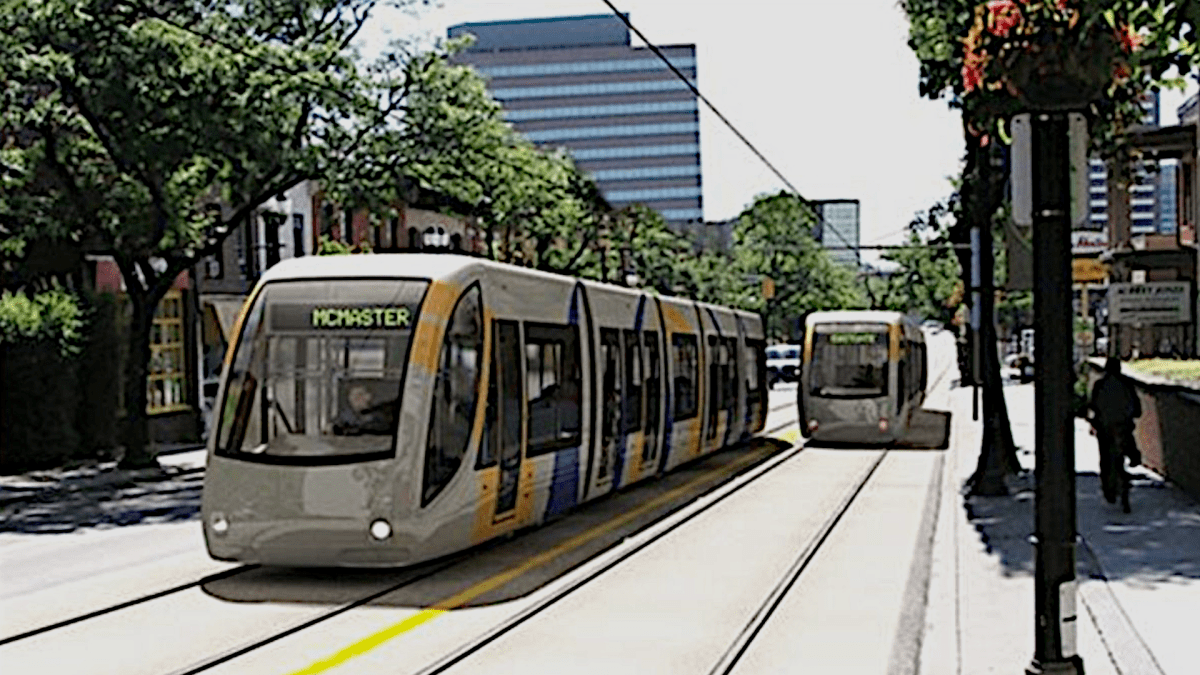Although better wages and safety are points of contention in contract negotiations between the city and transit workers, a demand to operate Hamilton’s forthcoming $3.4-billion Light Rail Transit (LRT) system is just as big a snag.

The president of the union representing Hamilton Street Railway (HSR) staffers admits it’s a big unanswered question and a “sticking point” the city ultimately may not have control over since most elements of the LRT fall under the purview of Metrolinx.
Amalgamated Transit Union (ATU) Local 107 boss Eric Tuck believes his members have “historical rights” to operate and maintain the service since it’s really a conversion of a B-LINE route they agreed to operate over a decade ago during the conception of a rapid transit system.
“We are the transit union that’s provided safe, efficient, reliable transit for 150 years. We’ve developed the gold star brand and should get first bid at that work,” Tuck insists.
On Monday, a presentation to a city subcommittee presented the second of three reports for councillors outlining four potential operation models for the LRT which included complete city control or full privatization of day-to-day operations.
Two other plans split the operation of the line between city staff and a third party.
A fifth model sought to not only take on operation but also maintenance of the line, however the city’s director of the LRT project office, Abdul Shaikh, said Metrolinx insisted on optioning that out to a third party.
- What Trudeau’s podcast appearances say about Canada’s next election
- Ontario unveils new plan limiting cellphone use, banning vaping in schools
- Why aren’t more foreign grocers in Canada? Lack of space a hurdle: minister
- U.S. schools shut down student anti-war encampments after antisemitic activity reports
“They mentioned that this should not be considered for evaluation because all of the maintenance activities will be performed by a third party,” Shaikh said.
A group advocating for the municipal operation of Hamilton’s future LRT suggests a public inquiry into Ottawa’s version can teach city politicians the importance of transparency through the process.
Members of the Keep Transit Public Campaign appearing before the committee urged councillors to employ HSR Transit, insisting that privatization was behind a report that said “deliberate malfeasance” was rampant in the capital’s $2.1 billion system.
That inquiry pointed the finger at city officials and contracted companies saying they were at fault for delivering an error-ridden, unreliable system after a 16-month delay.
Keep Transit Public’s Katie King suggested that the city not only operate the line but insisted they negotiate with the Ford government to put maintenance in the hands of the HSR.
“Solutions to problems that will inevitably come up will be easier and quicker to solve because oversight will be centralized and local so the public will know who to hold accountable, the HSR, ATU and the city,” King explained.
Tuck argues Ottawa’s P3 operating model — a contractual arrangement between public and private entities — brought subcontractors into the mix and left little accountability and responsibility when things went wrong in Ottawa.
“Why would we go to a private corporation that is going to put profits over people,” Tuck insisted.
“Why give them more money when they have nowhere near the history and the record that HSR has of providing proper service and accountability day in and day out.”
City staff are hoping to have a decision on a preferred model for the line’s operation by the end of 2023.
The final staff recommendation is expected to go before a city subcommittee in December.
In the meantime, the city has requested a formal no-board notice from the Minister of Labour in the hopes of “expediting an agreement” in the current contract talks with the ATU.
Tuck says the union has not planned any specific action at this point, but says either side can do something after Oct. 25.
“We have four more days of negotiations, at which point we will report back to our members and we’ll see where we go from there.”





Comments